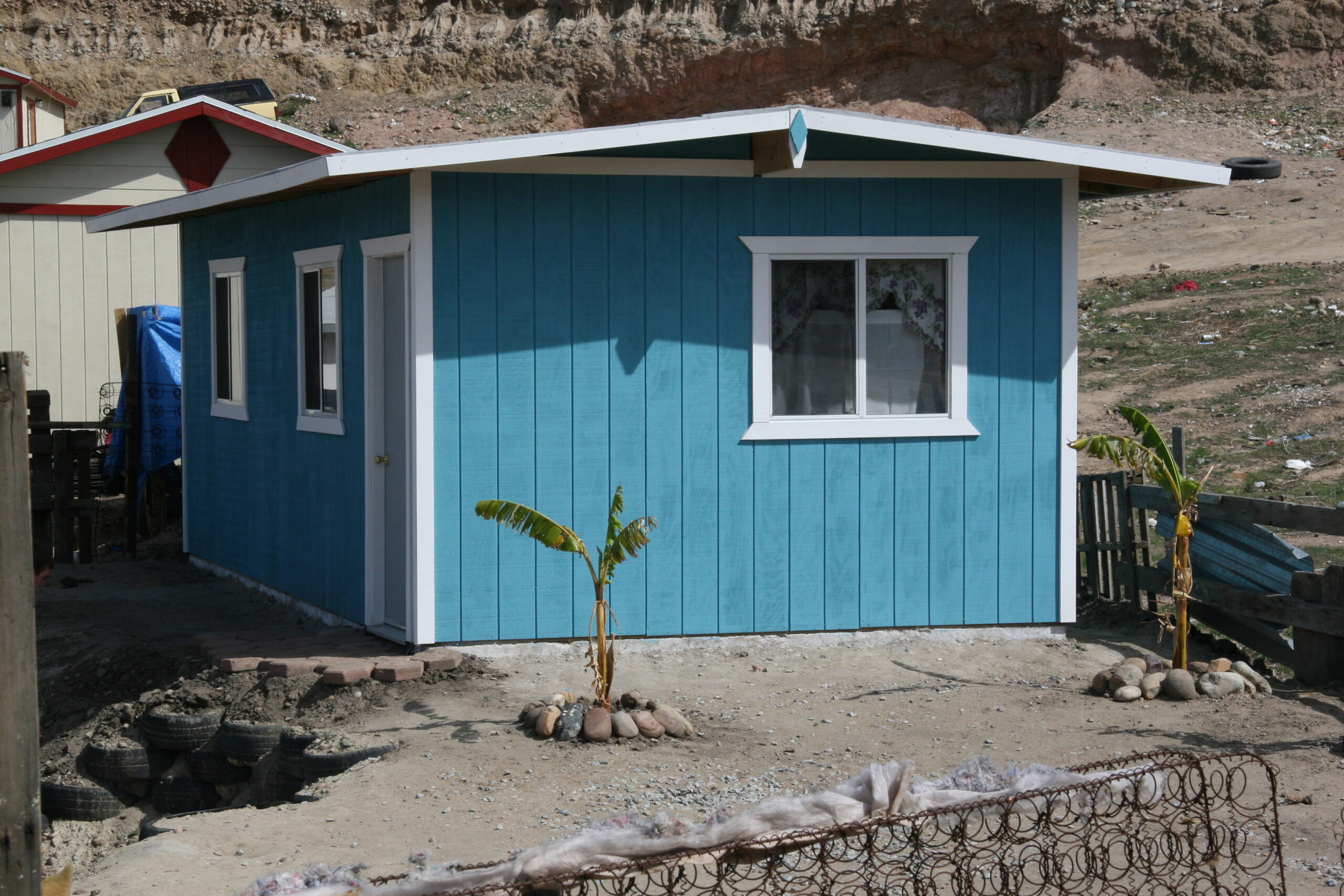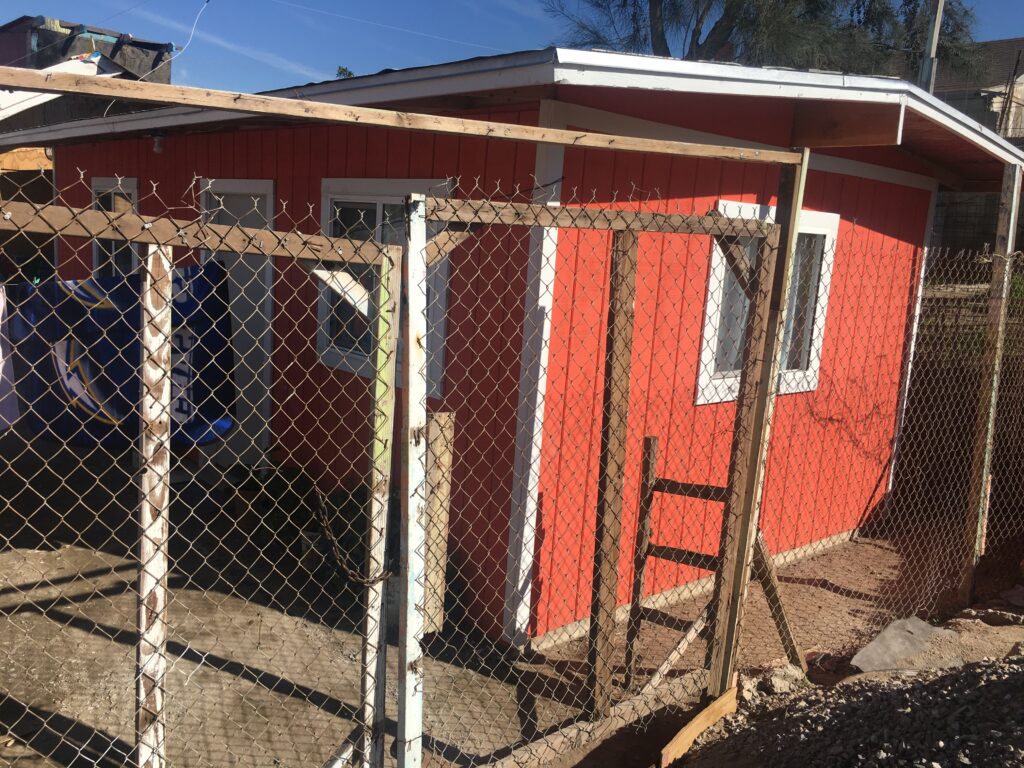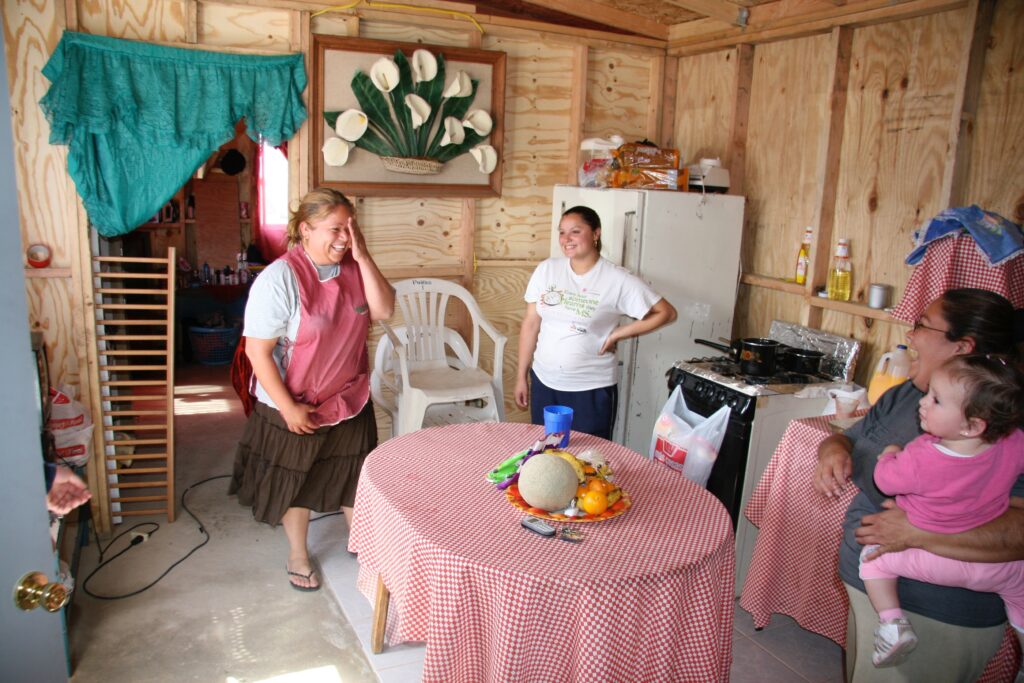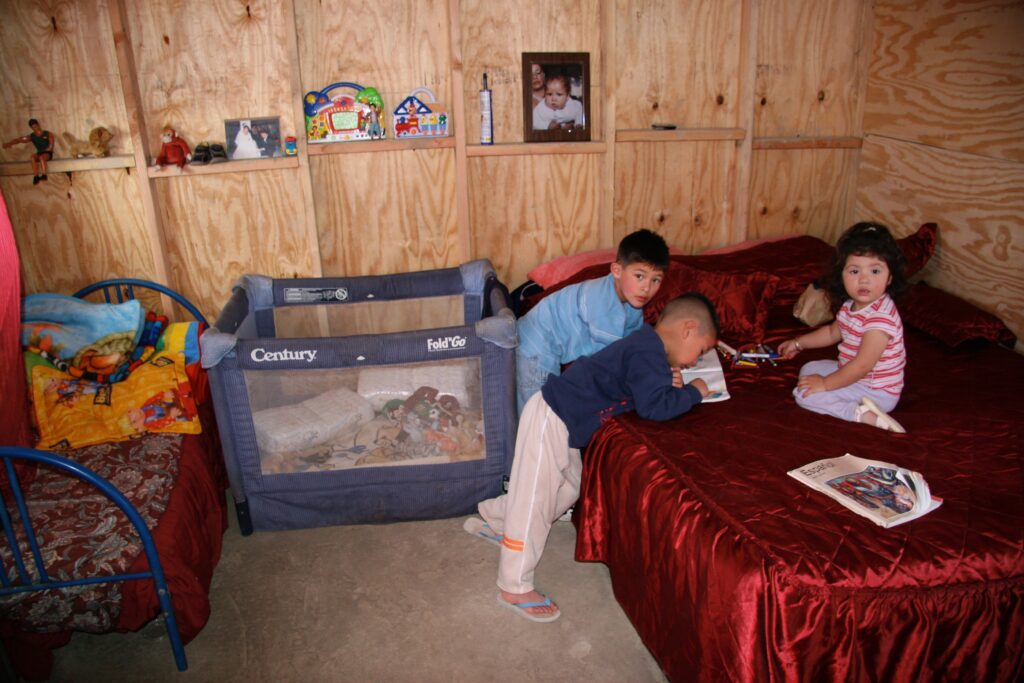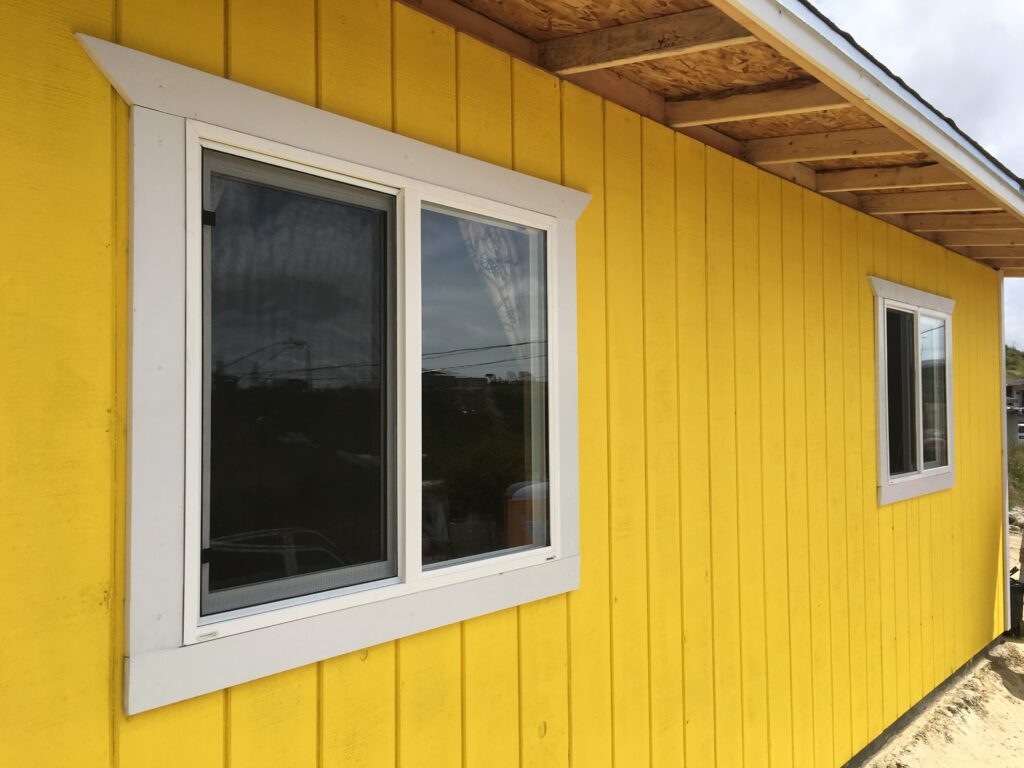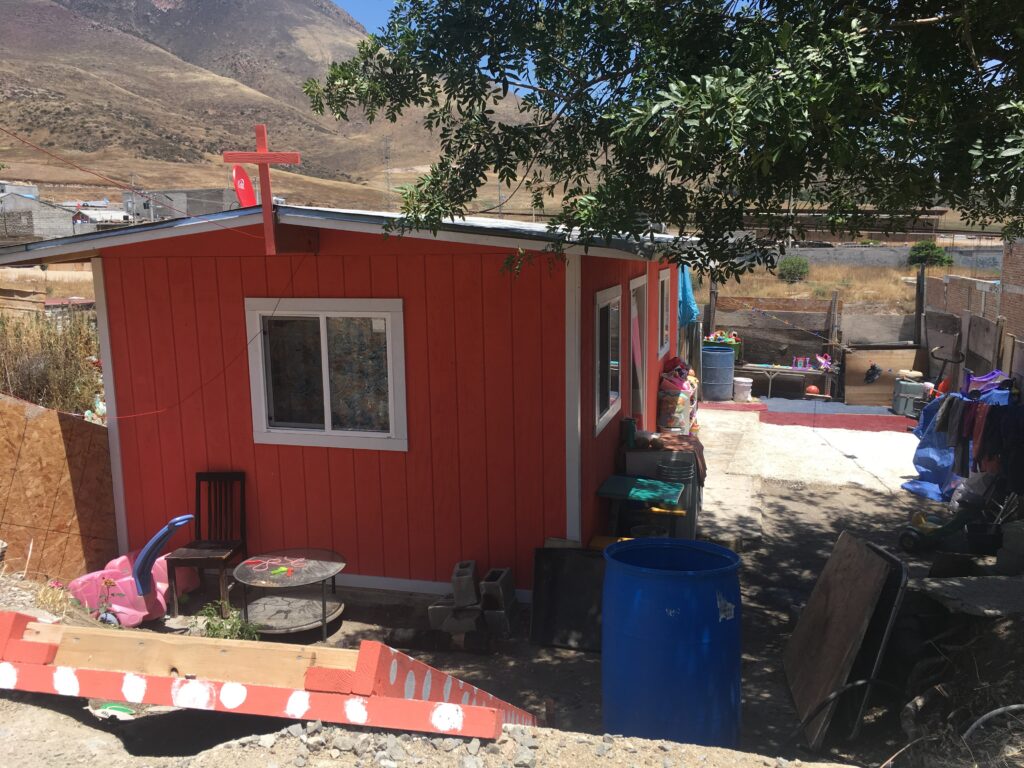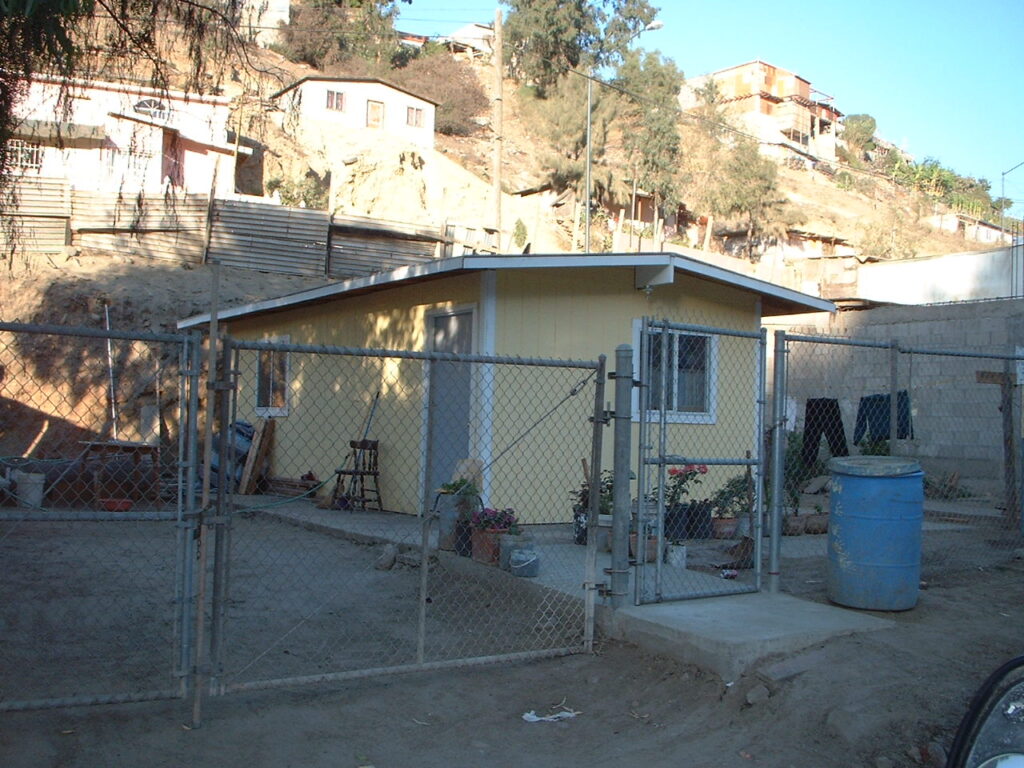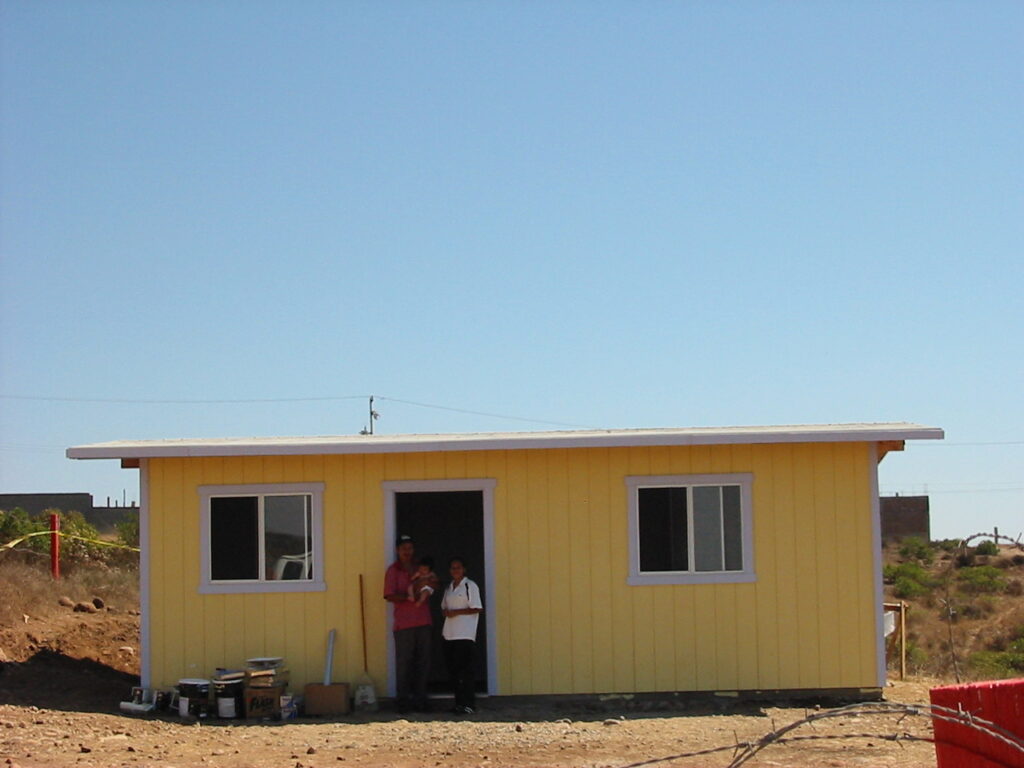All families that end up receiving a house from Doxa must go through an application process. This process has been the product of many years of experience and, to some extent, trial and error. Since 1990, it has been Doxa’s privilege to be part of building over 2000 houses all over Tijuana. This magnitude of work, however, has also necessitated an application process that ensures only qualified families receive a house.
Rosa and Maria work on the western and eastern sides of Tijuana, respectively, to process family applications. All families follow the same process:
- The family makes initial contact with Rosa or Maria and fills out an application form with basic information (names, contact info, employment, financial info, family history, location of land for the house).
- The family submits various documents: IDs of all adults who will live in the house, birth certificates for the kids, proof of land ownership, employment/school records, and other documents as required. Doxa has learned the importance of requiring land ownership. If the recipient family does not own the plot of land, then they can soon lose their new home to a formerly absent landowner.
- Rosa or Maria interviews the family, reviews all of their information, and begins to understand why they are applying for a house. Sometimes a site visit of the family’s current living situation is needed, other times not. Rosa or Maria typically make a determination as to whether the family is approved. If a family falls into a gray area and they are not sure if a family should be approved, then we discuss that family among everyone to make a final determination together. Most families that apply for a house successfully end up receiving one.
- If approved, the family moves on to complete 120 hours of volunteer service. This is usually to a partner orphanage, but could also be to other local organizations. Rosa and Maria try to find a natural fit for any skills that the family has. For example, if the husband in the family knows how to weld, then maybe there’s some metalwork that needs to get completed. Likewise, if the wife in the family is an excellent cook, then perhaps she’ll dedicate some time to cooking for the orphanage. It’s all dependent upon the current needs of the community and the skills of the family.
- Rosa or Maria conduct a site visit of the family’s land. They counsel the family about what work, if any, needs to be done to the land to adequately prepare it for a Doxa house. Some families have nothing to do while others have to move entire hillsides or take down their current living structure to make room.
- The family goes on the wait list. We typically get to families within a year, but there are some cases where they wait longer. During this time is also when the family is responsible for preparing their land.
- Sand, gravel, and water (if no running water available) are delivered to the family’s land a couple days before the volunteer group is scheduled to begin.
This process ensures qualified families receive houses and are good stewards of the home after the volunteer group leaves Tijuana. On return trips, we encourage groups to visit their old building sites, reconnect with the family, and see how they have turned the house into a home.
